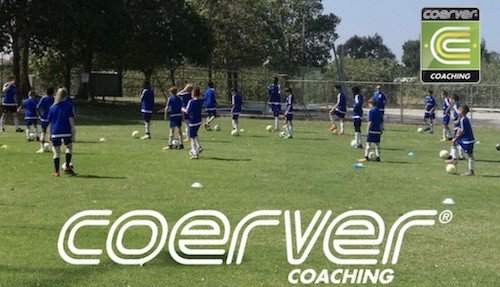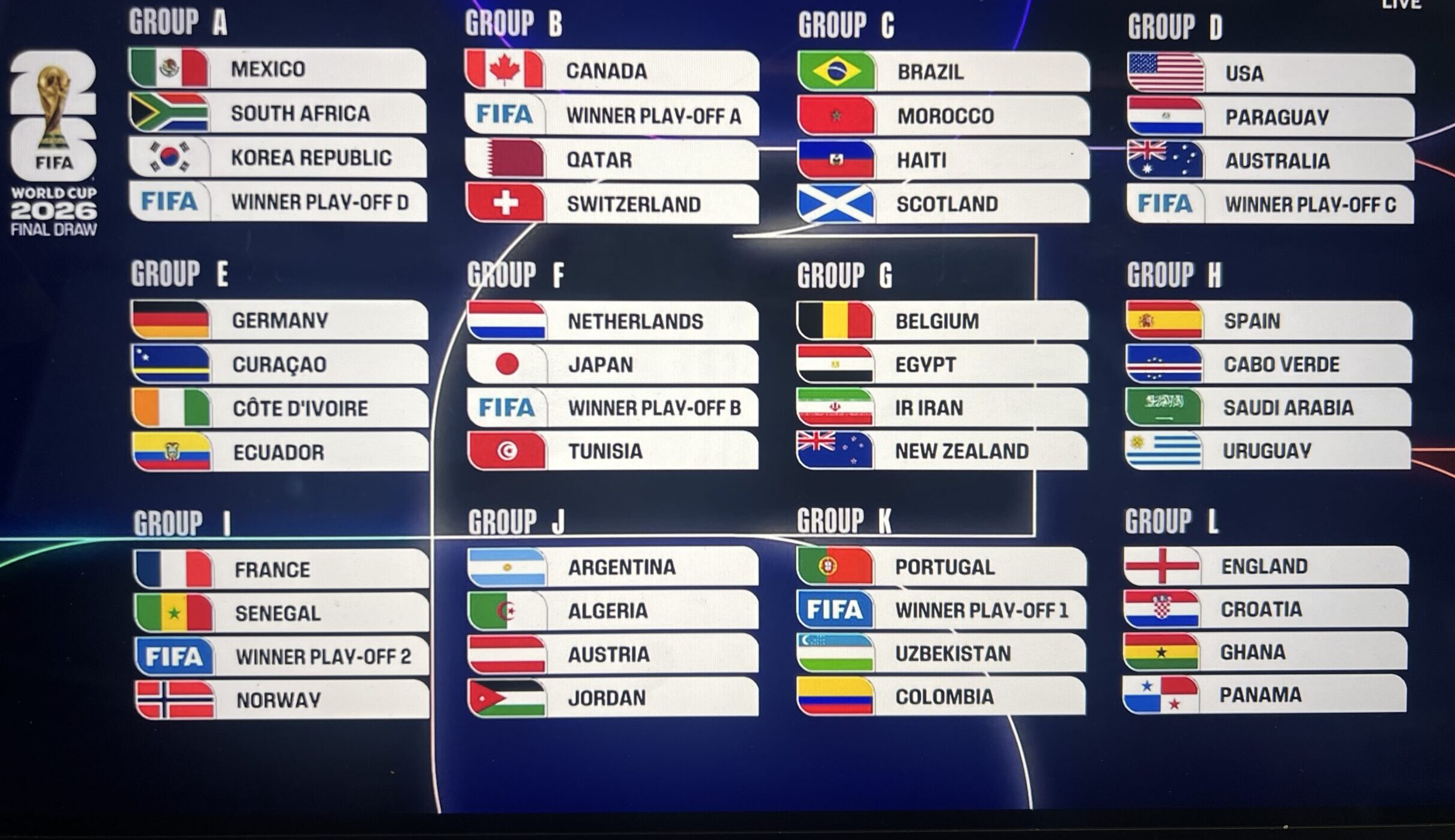By Coach V
Last week I got email from a soccer parent / coach. He and his son were watching the SoccerU series together, session by session and working on all the technical soccer skills at home. He was amazed at the level of improvement in his son’s soccer skills. Even his coaches had commented at his club. He started to question whether or not he should move his son to a different soccer club.
He knew there was a “better ranked” club about an hour away from his home town and thought that might help his son. What he didn’t realize is that HIS efforts, away from the structured soccer practice, were the reason why his son was improving. (And this is really what made Christian Pulisic a soccer star.) My response included many of the points below.
A boring youth soccer game.
This past weekend I made it a point to watch the top U12 team in our state, ranked #1 in the state and #4 in the nation, and guess what? I was rather disappointed. I saw a group of ‘average kids’ with average skills kicking a soccer ball around the field just like most games everywhere else. Why are they ranked so high and why do they win so many games? It’s not due to outstanding talent, brilliant players, or great soccer coaching, it is about numbers.
While they played several teams in this tournament one thing was clear about their team, all the boys looked alike. Same height, same build, good athletes and average to above average soccer skills. The key to their success? They had 6 more of these kids sitting on the bench. A strong “average” player kept them from having weaknesses that most teams face. Their club had four U12 teams and over 150 kids trying out for slots on those teams. It’s pretty easy to “scrape the cream” when your pool is so deep. This simply reinforced the fact I have long faced with soccer in the US and many other countries. The days of brilliant young soccer players may never come and I’ll tell you why.
Where have all the artists gone?
First take a look at one of my favorite soccer players of all time, Maradona. An artist with a soccer ball, he grew up very poor and spent every afternoon after school and all the weekends playing soccer. Seldom would his parents know exactly where he was during these times, but it was assumed he was at the fields with his friends. If you take these guidelines he played roughly 1100 hours of soccer every year before going to a “structured club” environment. From the time he could run soccer was all he knew and the only thing that brought him happiness.
Next look at Cristiano Ronaldo. As a young child Ronaldo was obsessed with soccer. His mother would ask him if had any homework to do after school, Ronaldo used to lie and say no. He just wanted to play soccer. While his mother was making dinner for the family Ronaldo would just grab some fruit and climb out of the window. Sometimes he would not come home till nine o’clock at night because he had been playing soccer. Again, he probably spent over 1000 hours a year playing soccer as a child.
Now, let’s look at your child’s soccer schedule. For most players there is a structured practice twice a week for 1.5 hours, and one game per weekend. This happens for about 12 weeks in the spring and fall. Throw in a week or two of summer soccer camp and you have a total of 100 – 150 hours of “soccer time” per year. Now let’s compare, 1000 plus hours per year vs. 100 hours per year. Is your child a soccer superstar in the making? I think not. More than likely he or she will join the ranks of “better than average” players that can be found in every town in America.
We live in an age that is vastly different from 20 or 30 years ago and certainly different from very poor countries. Kids come home from school do their homework, watch TV, play video games, or maybe shoot some hoops with the neighbor next door. School and structured activities occupy much of their free time and many play several different sports during a year. If your child “goes out” you know exactly where they are, whom they’re with and what they are doing.
It’s not like the “old days” where kids just disappeared for 8 hours and parents assumed they would come home sometime after dark. Driving around my town I seldom, if ever, see “pick up” soccer games. There are plenty of fields around but most are empty the majority of the time. The days of spending countless hours on the grass, with a ball at our feet are pretty much gone forever. Sadly when you look at many of the “soccer greats” most of their creativity and marriage to the ball happened during these times.
Soccer experts are created, not born.
I think you are starting to get my point. Experts or professionals are not born that way. They get that way through thousands of hours of play, practice, exposure and soccer training. Just because a child is a good “athlete” doesn’t mean they’ll be a great soccer player. Rafael Nadal, a top ranked professional tennis player, grew up playing soccer before an uncle switched his focus to tennis. What if his other uncle, who played in three world cups for Spain, had focused him on soccer? What would he be doing now? Expertise and developed skill is a result of focused attention, practice and training. Going to soccer practice twice a week for an hour is not the path of a future soccer great. It is, however, the path that most average soccer players in the US take.
Our lifestyle and culture in the US does not support this path of greatness. It is not one of soccer pick up games, and weekend soccer where we simply go to play the game we love. Our kids don’t have a soccer ball at their feet 7 days a week. Kids don’t show up back at home Wednesday night at 9:30 after spending 6 hours on the pitch playing free play soccer. Many simply lack the “artistry” and developed natural control that many players in the past or in other countries have. However, I don’t see this as an “ALL bad thing”, just something that needs to be understood.
It’s OK to have a life outside of soccer when they’re kids and beyond.
By now many of you are starting to wonder if your child will ever be able to gain the touch and skill needed to be a quality player.
“What can I do now that I understand our culture and times are different than other countries and years gone by?”
“Should you dump them off in some third world country and hope they develop these skills?”
“How is my child going to get the needed training to improve?”
Calm down and realize this.
I want you to understand that there are many “Maradonas” still living in poverty. They also grew up very poor and played soccer 7 days a week but never had the luck or opportunity that he had. Many failed to get an education or never had the chance for one. There are many “Maradonas” working in underpaying factories or unemployed all over the world.
In a way, we should be glad that our children have to “find time” for soccer. A well rounded, well educated child has the best chance for success in life. I believe however, we can accomplish this and still develop players with greater ability, talent and creativity. You as a parent play a greater role in that than you think.
Here are some tips to help your child improve their soccer skills!
Stop trying to find that “perfect” club.
If your child is playing on an “Academy team” (travel soccer team) they’re going to get about the same exposure and training that all the others players get across the nation. Yes, some clubs might have a better coaching staff or focus more on development, but remember it’s only about 2 or 3 hours a week for 2 short seasons a year. It is a small part of your child’s development. Chances are that driving an extra hour each way to that “better club” will have little effect on your child’s development.
Don’t think that summer soccer camps are “training grounds”.
Most short summer soccer camps (3 – 5 days) are a great “growing” experience for kids. They learn to be away from home, how to make new friends, and deal with an unknown environment. They do this and get to play some soccer as well. However, 3 days at a soccer camp will not turn your child into a soccer great. Instead of canoeing, horseback riding and archery, your child will be playing the game they love and surrounded by other kids that love the game as well. They will return with the same skills they had before they left. Keep this in perspective and they’ll have a great time.
Make time at home for training and practice.
I’ve always said that the best coach I ever had was my dad. Not just for sports, but life in general. We are greatly shaped by our parent’s involvement in what we do at the youth level. Parents must take the role of mentor and teacher. They must learn how to train their child and how to encourage their growth in the skills needed. I strongly believe that a parent and child should learn together. Seeing dad bust his “behind” trying to do a new move is great for laughter and bonding. It lets the younger player know that learning happens all the way through life. Several times a week make the time to do touches, moves, shooting, trapping and touch on the skills that are not worked on during normal practices. You will cherish these sessions for the rest of your life as time well spent with your child.
Create a local weekend pick up league.
Most local, public parks and recreation facilities have no restrictions on local tax payers using their fields, if they are not “an organized league”. You can email friends and teammates and have weekend games during the off season. We started one locally and one Sunday afternoon had 50 kids show up. (All different ages, both boys and girls.) We coned off 5 small fields and played 5 v 5, round-robin. We kept the parents out of the picture and just let the kids play. Probably the most fun I’ve seen the kids have in years. Even if you only have 6-8 kids, let them play and they’ll have a great time. Remember, these are not coaching and teaching sessions. Let them run the show.
Watch top level soccer as well as “not top level” soccer.
A great exercise is to have a developing soccer player watch a premier league match, then watch a high school or college match. Watch for the little details. What makes the best in the world better than others? When the ball is passed on the upper game, every pass is perfect pace and on the ground. Lower game, lots of bouncing balls and air balls. Upper game, every air ball or bouncing ball is killed with the first touch. Lower game, players often move away from air balls or fail to control them. Upper game, finishing strikes are usually low and at the corners. Lower game, over the cross bar or right at the keeper. It is a reflective exercise that really helps maturing players understand that the slightest improvement in skills makes a huge difference in the game.
These same points I passed on to that parent must be understood by all working with a young soccer player. Playing “travel” soccer is simply one part of a child’s development. It is what happens AWAY from this structured environment that truly may have the greatest impact on your child’s development. Accept the fact that times and schedules have changed and build around it. Keep it fun and cherish these times as bonding and memories, not just a soccer time.
- Your Child’s Soccer Tool Bag is Long Term
- Best Formations for Youth Soccer
- How to Kick a Soccer Ball
- You Have the Soccer Ball, So Now What?
- Build a Soccer Champion Part I
- Build a Soccer Campion Part II
- Youth Soccer Training in the Backyard
- Eating Right for Soccer
- Getting Older Getting Worse
Learn more at SoccerU














